With the international community changing tack to advance the low-carbon economy, Korea should act on its promise to cut greenhouse gas emissions and muster global cooperation toward its materialization, a renowned scholar on climate change has said.
In an interview with The Korea Herald, professor Chung Suh-yong of Korea University’s Graduate School of International Studies stressed the “implementation” of the country’s commitment to the Paris agreement in 2015 was essential.
Also known as the Conference of the Parties 21, the historic deal forged by the United Nations produced a worldwide agreement on limiting global warming to less than 2 degrees Celsius compared to preindustrial levels. The participating 196 governments vowed to pursue efforts to limit the temperature increase to 1.5 Celsius between 2030 and 2050.
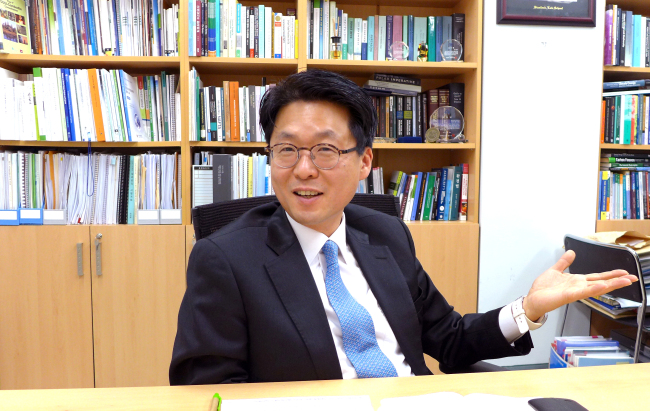
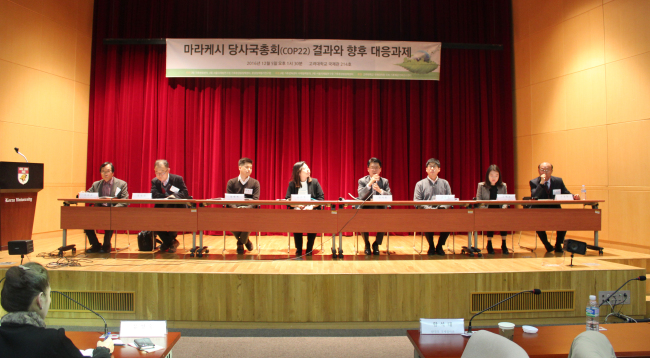
“The Paris agreement was a surprising success given that countries agreed on a legally binding framework voluntarily, to extend the Kyoto Protocol’s second commitment period,” the professor said.
Chung teaches international law and relations with a focus on climate mitigation and sustainable development.
Under the Kyoto Protocol -- an international treaty forged in 1997 and enforced since 2005 with “common but differentiated responsibilities” -- developed countries bore responsibilities to reduce emissions on the logic that they largely contributed to global warming through centuries of industrialization. Developing countries such as China, India and even the US were opposed to it, fearing that their commitment might hamper their national economic growth. The deal was also strewn with regulations and legally binding obligations as a “top-down” approach.
However, the Paris accord is fundamentally different, laying the responsibility on both developed and developing nations. Through voluntarily articulated and nationally determined contributions (NDC), countries are to set their own reduction targets and ways to achieve those goals. Seoul through its NDC stated it will curb its emissions by 37 percent of the estimated emissions volume by 2030, if Korea followed the current trajectory.
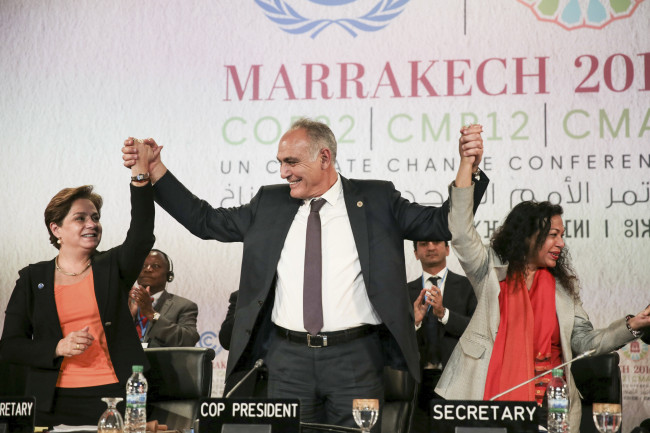
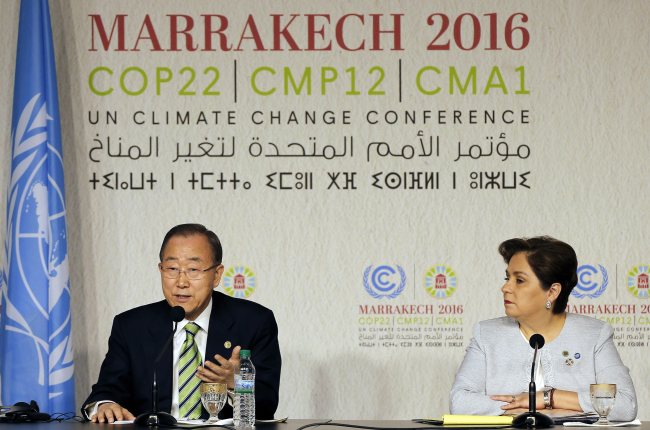
“The essence of the Paris agreement is encouraging countries to participate in the emerging low-carbon economy,” Chung emphasized. “It is not about imposing certain costs for not abiding. Therefore it is a ‘bottom-up’ approach, unlike the previous ‘top-down’ approaches of past agreements.”
If countries actively take part in this worldwide paradigm shift, they can reap long-term dividends in sustainable growth, with benefits accrued by renewable energies, infrastructure development, energy-efficient technologies and other green industrial projects, according to the scholar.
Following Paris, countries have begun institutionalizing policy frameworks geared toward the market mechanism, transparency and financing, among others.
If Paris was about the “deal,” the last COP in Marrakech, Morocco, last November was about the “detail,” according to media outlet Aljazeera. The 22nd conference focused on allowing countries to develop legislations that would materialize the Paris accord’s objectives.
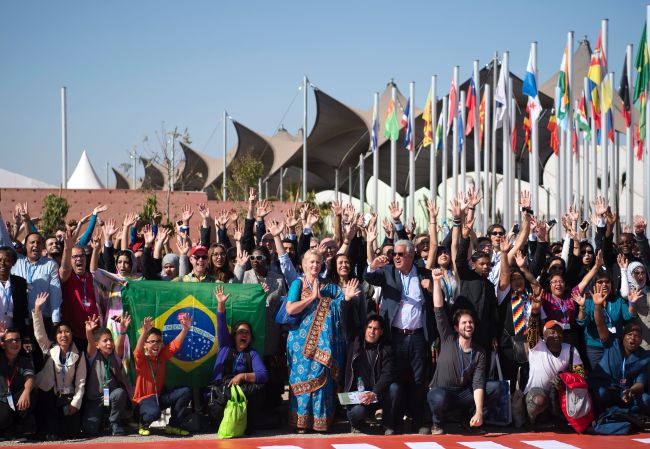
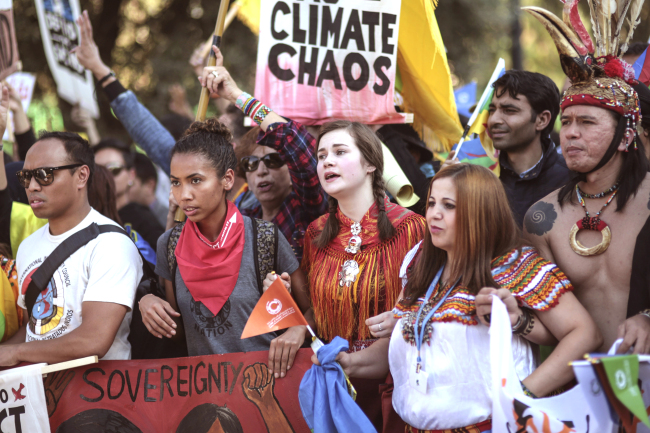
As part of each country’s reduction plans, governments can utilize domestic and international market mechanisms for the trading of carbon emissions rights, such as the emissions trading scheme, clean development mechanism and mutually supportive implementation. The international market mechanism is yet available. Korea, for its part, said it would derive 26 percent of reduction domestically, with the rest from the international market.
“Our government needs to be more serious about reducing the emissions, by going beyond the 26 percent,” Chung said, adding relevant industrial restructuring and devolution of decision-making will be needed.
Regarding concerns over Washington’s hostile policies toward climate mitigation under US President Donald Trump, the scholar projected global cooperation will not be undone easily, although some setbacks may occur.
“There are lots of opportunities for regional cooperation in mitigating climate change,” Chung said. “China is one of the rising global leaders in this field, with huge investments in green technologies and renewable energies for its vast domestic market. Korea could cooperate with China in joint projects, link the two countries’ carbon markets and form similar stands in climate negotiations.”
The Global Green Growth in Seoul, the Green Climate Fund in Songdo, Incheon, and China’s Asian Infrastructure Investment Bank can collaborate on projects of collective interest, such as tackling pollution from fine dusts released by coal power plants and diesel vehicles, he advised.
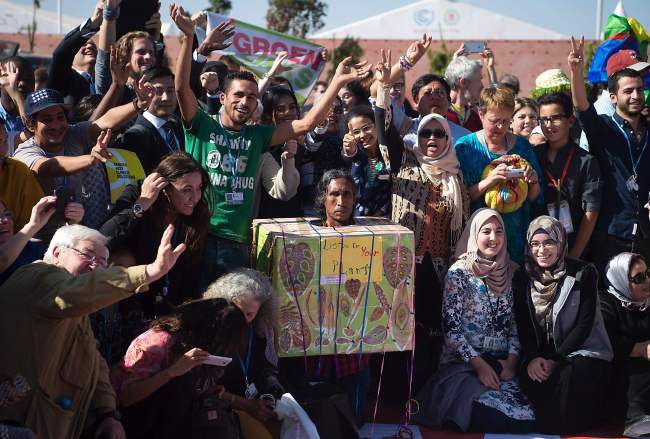
Developing super-grids -- transmission networks that transport high volumes of electricity across great distances -- between Korea, China and Japan for the hauling of power from clean energy and natural gas, and extending them to Central Asia and Europe is a possibility, he added.
“We need not necessarily confine our vision and reach to our traditional territory. These projects could spawn a regional community committed to green growth.”
As global warming is a crosscutting issue, Chung underscored that interministerial cooperation is critical for harmonizing policies and fostering communications.
“This would involve the ministries of environment, strategy and finance, trade, industry and energy, foreign affairs and land, infrastructure and transport, among others,” he said.
“There also needs to be a control tower under the president, which can oversee the perilous domestic and international situations with a bird’s eye view, and coordinate responses accordingly. Our next president should be highly interested and involved in all of these issues.”
By Joel Lee (joel@heraldcorp.com)
-
Articles by Korea Herald









![[Kim Seong-kon] Democracy and the future of South Korea](http://res.heraldm.com/phpwas/restmb_idxmake.php?idx=644&simg=/content/image/2024/04/16/20240416050802_0.jpg&u=)








![[KH Explains] Hyundai's full hybrid edge to pay off amid slow transition to pure EVs](http://res.heraldm.com/phpwas/restmb_idxmake.php?idx=652&simg=/content/image/2024/04/18/20240418050645_0.jpg&u=20240418181020)

![[Today’s K-pop] Zico drops snippet of collaboration with Jennie](http://res.heraldm.com/phpwas/restmb_idxmake.php?idx=642&simg=/content/image/2024/04/18/20240418050702_0.jpg&u=)